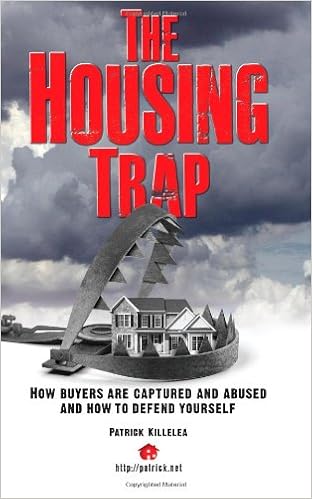
Anyone thinking about buying housing should definitely read this book. It presents clearly and concisely many counterpoints to the sales pitches and "conventional wisdom" that most people hear endlessly from realtors, mortgage brokers, politicians, and news reports. Regardless of whether sale prices are high or low, or which way they might move, objectivity depends on balancing evidence and arguments on both sides. Most people hear only the arguments in favor of buying, presented by self-interested sources and supported by evidence that may be cherry-picked or even falsified. Patrick exposes the interests involved and addresses their arguments and evidence, so that readers can be forewarned and thus forearmed.
So far the other reviews are either 5-star or (in one instance) 1-star, with some possibly reflecting opinions of broader market prices rather than the book. The one-star review said the book would have been better timed during the bubble inflation 2004-06, and would have been ill-timed in the 2010-11 dip; that's mostly irrelevant because everyone's decisions must be based on individual circumstances that vary widely regardless of the overall market. The relevant supply of housing is always local, even though demand depends partly on macroeconomic factors (e.g. federal policy) and global capital markets.
The book does leave some slight room for improvement in future editions. Page 2 candidly introduces the book as lay opinion and warns not to take any of it as professional advice, but even so the tax arguments might benefit from review by a CPA with relevant experience. Occasional typos can be distracting, although those can occur even in books published by major houses. The section that begins, "Favor FSBOs," says that sellers "get the same or better average selling price" but that would mean buyers are paying a higher price. (In fairness to the book, buyers might still come out ahead if their process goes more efficiently and they choose a more suitable home without realtors' sales patter and self-interested referrals, because as the book notes, "the layer of harmful obscurity created by real estate agents is removed." The right home for the buyer is actually worth more to that buyer, while the most aggressively sold house might be worth less.) If the first edition finds a big enough audience, hopefully a second edition will be even better.
Meanwhile, this book is the best I have ever seen at responding to the self-interested misinformation presented by the finance, insurance, and real estate industries. The book includes links to the author's website, which includes a free calculator to help evaluate objectively whether a particular house or apartment might be worth buying. Having read both the website and the book, I am glad to have bought the book because it organizes the relevant arguments and information in such a clearly readable way. It also makes a better gift to present someone a book rather than merely referring to a website.
No comments:
Post a Comment